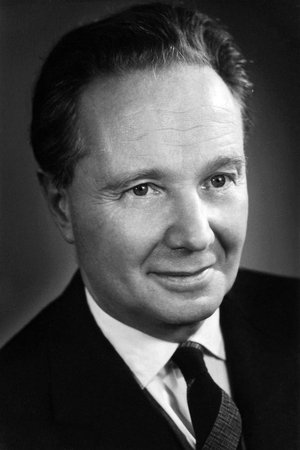Robert Merle (1908-2004)
Birthplace:
Tébessa, Constantine, France [now Algeria]
Born:
August 28, 1908
Died:
March 27, 2004
Robert Merle (28 August 1908 – 27 March 2004) was a French novelist. Merle was born in 1908 in Tébessa, French Algeria. His father Félix, who was an interpreter "with a perfect knowledge of literary and spoken Arabic", was killed in 1916 in the Dardanelles. Young Merle and his mother moved to Paris, where he attended three lycées and the Sorbonne. Merle was professor of English Literature at several universities until the outbreak of the second world war in 1939. During World War II Merle was conscripted in the French army and assigned as an interpreter to the British Expeditionary Force. In 1940 he was in the Dunkirk evacuation on the beach of Zuydcoote — which he called a "blind and abominable lottery" — and was captured by the Germans. Merle was taken prisoner to Stalag VID at Dortmund, and escaped, but was recaptured at Belgian customs. He was repatriated in July 1943, and after the war was awarded the Croix du Combattant. Merle used his experiences at Dunkirk in his 1949 novel Week-end at Zuydcoote, which became a "sensational success" and won the Prix Goncourt. A 1964 feature film adaptation, Weekend at Dunkirk, was directed by Henri Verneuil and starred Jean-Paul Belmondo. It was a box office hit and made both men famous. Merle's 1967 novel Un animal doué de raison (lit. A Sentient Animal), a stark Cold War satire inspired by John Lilly's studies of dolphins and the Caribbean Crisis, was translated into English and filmed as The Day of the Dolphin (1973) starring George C. Scott. Merle's post-apocalyptic novel Malevil (1972) was also adapted into a 1981 film. His 1952 novel La mort est mon métier was adapted into a 1977 film, his 1962 novel L'île was filmed as a 1987 miniseries and Le propre de l'homme (1989) was adapted into a 1996 TV movie. Among Merle's other works are the 1950 play Flamineo, based on John Webster's The White Devil, the 1948 biography Oscar Wilde (extended in 1955 as Oscar Wilde, or The Destiny of Homosexuality), and various translations including Jonathan Swift's Gulliver's Travels. In 1965 Merle wrote Moncada: premier combat de Fidel Castro and Ahmed Ben Bella, and around this time translated the diaries of Che Guevara. Until the invasion of Afghanistan by the Red Army, Merle was a sympathizer of the French Communist Party. He said: "I was just a minor militant, and my fellow Reds did not approve of what I wrote. As for the student riots of May 1968, I never believed in the reality of that revolution. The only thing of value that came out of it was the liberation of sexual relationships." Merle's "major achievement" was his 13-book series of historical novels, Fortune de France (1977–2003), which recreate 16th and 17th century France through the eyes of a fictitious Protestant doctor turned spy. A "genuine scholar of language", Merle wrote the novels using many of the appropriate French speech rhythms and idioms of the historical period. The series made Merle a household name in France, with the author repeatedly called the Alexandre Dumas of the 20th century. Merle was married three times, and had four sons and two daughters. He died in 2004 at age 95 of a heart attack in Montfort-l'Amaury, France. Source: Article "Robert Merle" from Wikipedia in English, licensed under CC-BY-SA 3.0.





